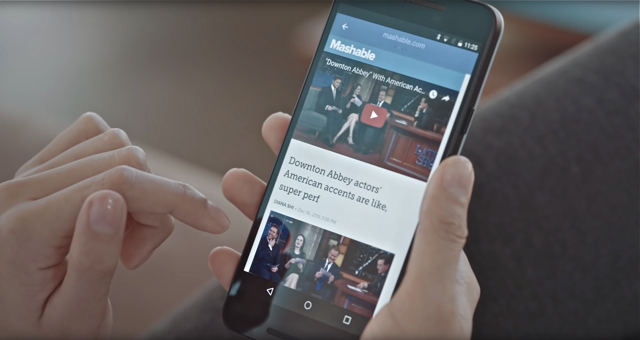Google Takes On Facebook with Faster Mobile News Delivery
February 25, 2016
Google has updated its mobile search with a fast-loading format, developed with input from various publishers, so that smartphone users can access news articles more quickly. Conducting a Google search will now bring users to a horizontal carousel of articles where each news item will feature a lightning bolt icon and the letters ‘AMP’ (Accelerated Mobile Pages). Clicking on an article will bring it up almost immediately. The new format comes as Facebook is expanding its Instant Articles program in an effort to speed the delivery of news articles and videos.
Google’s new format is meant to address the common sluggishness experienced when attempting to load pages on mobile devices, due largely to the mix of new and old tech used for most websites.
The sluggishness is also due to publishers that “have filled their pages with more and more widgets that deliver advertising and collect data on their users as media companies try to find ways to make money in a world where ad revenue is quickly shrinking,” reports The New York Times.
AMP works by stripping out “much of that invisible bloat while preserving” the intended look of the page and most of the advertisements, explains NYT.
Publishers are increasingly dependent on both Facebook and Google for much of their traffic. NYT notes that “major media companies, including The Atlantic, The Washington Post, Vox Media, BuzzFeed, The Guardian and The New York Times, are participating in both projects as they try to figure out how best to increase traffic and find new loyal readers, while also bringing in revenue from the new formats.”
Starting April 12, Facebook plans on opening up its Instant Articles program to all publishers, which should prove crucial in keeping people interested in their news feeds.
According to Kimberly Lau, VP and GM of digital properties at The Atlantic, 10 percent of the publication’s online traffic comes from Instant Articles (the magazine was an initial partner in the program), while 25 percent comes from other Facebook referrals.
“Now anyone with a website and a Facebook page anywhere in the world will be able to take advantage of the program, which lets publishers host content directly on Facebook instead of posting links to direct users back to their own sites,” reports The Wall Street Journal.


No Comments Yet
You can be the first to comment!
Sorry, comments for this entry are closed at this time.